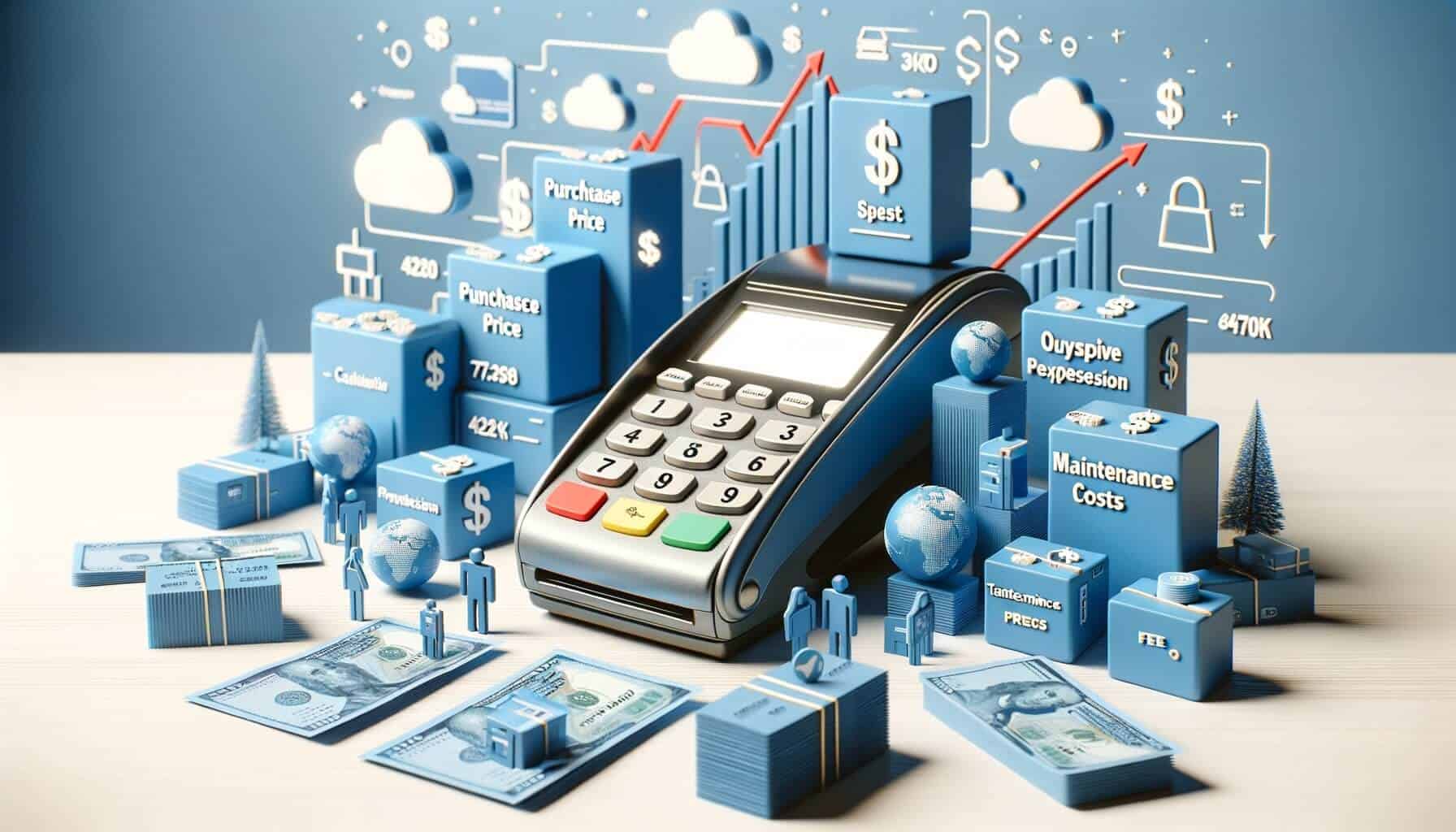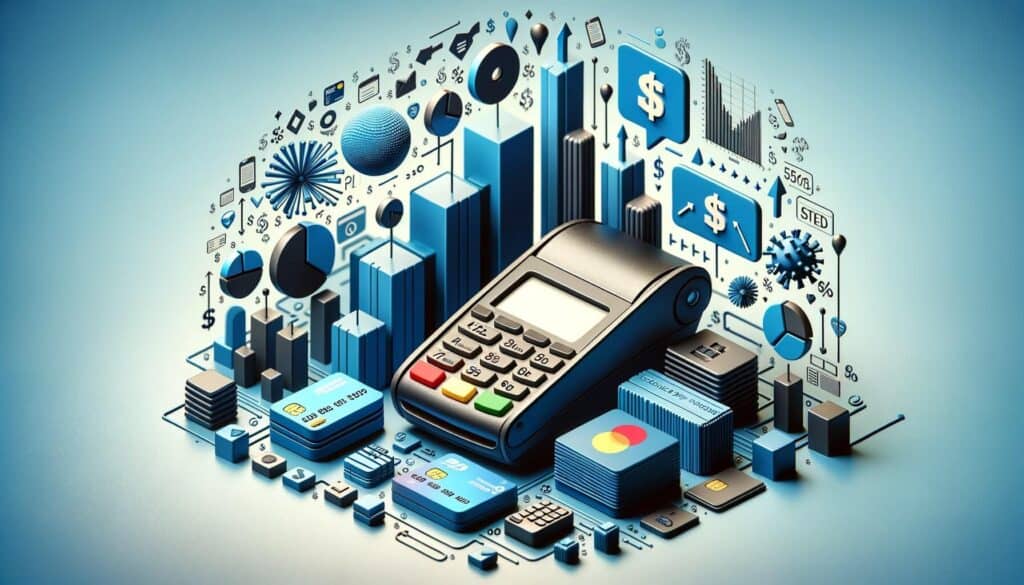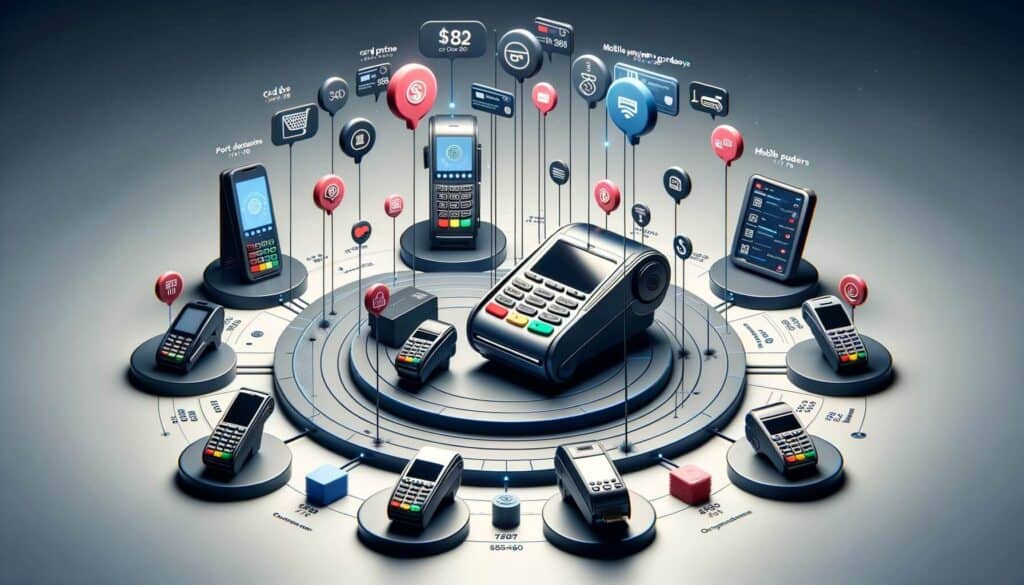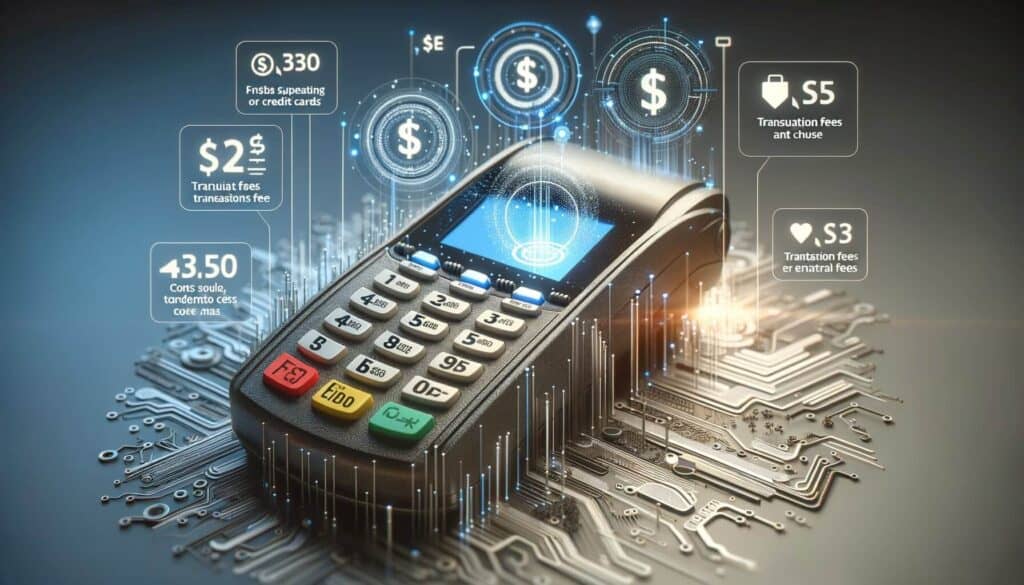
By Crystal Hopkins March 31, 2025
In today’s digital age, credit card machines have become an essential tool for businesses of all sizes. These machines allow merchants to accept payments from customers using credit or debit cards, providing convenience and security for both parties involved. However, before diving into the costs associated with credit card machines, it is important to understand the basics of how they work.
A credit card machine, also known as a point of sale (POS) terminal, is a device that enables businesses to process electronic payments. When a customer makes a purchase using their credit or debit card, the machine reads the card’s information and securely transmits it to the payment processor. The payment processor then verifies the transaction and transfers the funds from the customer’s account to the merchant’s account.
Factors Affecting Credit Card Machine Costs

When it comes to the cost of credit card machines, several factors come into play. Understanding these factors can help businesses make informed decisions about which type of machine to invest in. Here are some key factors that affect credit card machine costs:
1. Type of Machine: The type of credit card machine you choose will have a significant impact on its cost. There are various types available, including traditional credit card machines, mobile credit card machines, virtual credit card machines, and point of sale (POS) systems. Each type has its own features and functionalities, which can influence the price.
2. Features and Functionality: Different credit card machines offer different features and functionalities. Some machines may have advanced capabilities such as contactless payments, EMV chip card acceptance, and NFC (Near Field Communication) technology. The more features a machine has, the higher its cost is likely to be.
3. Brand and Quality: The brand and quality of the credit card machine can also affect its cost. Well-known brands with a reputation for reliability and durability may come with a higher price tag. However, investing in a reputable brand can provide peace of mind and ensure the longevity of the machine.
4. Connectivity Options: Credit card machines can be connected to the payment processor through various means, such as phone lines, internet connections, or wireless networks. The connectivity option you choose can impact the cost of the machine. For example, machines that require a dedicated phone line may be cheaper upfront but can incur additional monthly fees.
5. Payment Processing Fees: In addition to the cost of the credit card machine itself, businesses must also consider the payment processing fees associated with accepting card payments. These fees are typically charged by the payment processor and can vary depending on factors such as transaction volume, card type, and processing method.
Different Types of Credit Card Machines and Their Costs

Now that we have a basic understanding of credit card machines and the factors that affect their costs, let’s explore the different types of machines available in the market and their associated costs.
1. Traditional Credit Card Machines: Cost Breakdown and Features
Traditional credit card machines, also known as countertop terminals, are the most common type of credit card machine used by businesses. These machines are typically stationary and require a physical connection to a phone line or internet connection. They come with a keypad for entering transaction amounts and customer PINs, as well as a receipt printer.
The cost of traditional credit card machines can vary depending on the brand, features, and connectivity options. On average, businesses can expect to pay anywhere from $100 to $500 for a basic countertop terminal. However, more advanced models with additional features can cost upwards of $1,000.
2. Mobile Credit Card Machines: Cost Breakdown and Features
Mobile credit card machines, also known as wireless terminals, offer businesses the flexibility to accept payments on the go. These machines are portable and connect to the payment processor using wireless networks such as 3G, 4G, or Wi-Fi. They are ideal for businesses that operate outside of a traditional brick-and-mortar setting, such as food trucks, delivery services, or trade show vendors.
The cost of mobile credit card machines can vary depending on factors such as brand, features, and connectivity options. Basic mobile terminals can range from $100 to $300, while more advanced models with additional features like built-in receipt printers or barcode scanners can cost upwards of $500.
3. Virtual Credit Card Machines: Cost Breakdown and Features
Virtual credit card machines, also known as online payment gateways, allow businesses to accept payments through their website or online store. These machines do not require any physical hardware and can be accessed through a web browser. They typically come with features such as secure payment processing, customizable checkout pages, and integration with popular e-commerce platforms.
The cost of virtual credit card machines can vary depending on factors such as the payment gateway provider, transaction volume, and additional features required. Some payment gateway providers charge a monthly fee, while others may charge a percentage of each transaction. On average, businesses can expect to pay anywhere from $20 to $100 per month for a virtual credit card machine.
4. Point of Sale (POS) Systems: Cost Breakdown and Features
Point of sale (POS) systems are comprehensive solutions that combine hardware, software, and payment processing capabilities into a single package. These systems offer businesses a wide range of features, including inventory management, employee management, reporting and analytics, and customer relationship management (CRM) tools.
The cost of POS systems can vary significantly depending on factors such as the number of terminals, software features, and additional hardware requirements. Basic POS systems can range from $1,000 to $2,000, while more advanced systems with advanced features and multiple terminals can cost upwards of $10,000.
Additional Costs Associated with Credit Card Machines

In addition to the upfront cost of the credit card machine itself, businesses must also consider the additional costs associated with using these machines. Here are some common additional costs to be aware of:
1. Payment Processing Fees: As mentioned earlier, businesses must pay payment processing fees for each transaction processed through their credit card machine. These fees are typically charged by the payment processor and can vary depending on factors such as transaction volume, card type, and processing method. It is important to carefully review and compare the fees charged by different payment processors to ensure you are getting the best deal for your business.
2. Monthly Service Fees: Some credit card machine providers may charge a monthly service fee for the use of their machines. This fee can cover services such as customer support, software updates, and access to reporting and analytics tools. The monthly service fee can vary depending on the provider and the type of machine being used.
3. Equipment Leasing or Rental Fees: Instead of purchasing a credit card machine outright, some businesses may choose to lease or rent the equipment. This can be a more affordable option for businesses with limited upfront capital. However, it is important to carefully review the terms and conditions of the lease or rental agreement, as these agreements may come with additional fees and long-term commitments.
4. Maintenance and Support Costs: Like any electronic device, credit card machines may require maintenance or repairs from time to time. Some providers offer maintenance and support services for an additional fee. It is important to consider these costs when budgeting for your credit card machine.
Frequently Asked Questions (FAQs) about Credit Card Machine Costs
Q1. How much does a credit card machine cost?
Answer: The cost of a credit card machine can vary depending on factors such as the type of machine, brand, features, and connectivity options. Traditional credit card machines can range from $100 to $500, while mobile credit card machines can range from $100 to $300. Virtual credit card machines typically charge a monthly fee ranging from $20 to $100, and POS systems can range from $1,000 to $10,000 or more.
Q2. Are there any hidden costs associated with credit card machines?
Answer: In addition to the upfront cost of the credit card machine, businesses must also consider additional costs such as payment processing fees, monthly service fees, equipment leasing or rental fees, and maintenance and support costs. It is important to carefully review and compare these costs when choosing a credit card machine provider.
Q3. Can I negotiate the cost of a credit card machine?
Answer: Some credit card machine providers may be open to negotiation, especially if you are a high-volume merchant or have a strong credit history. It is worth reaching out to different providers and discussing your specific needs to see if they are willing to offer any discounts or incentives.
Q4. Can I use my existing credit card machine with a new payment processor?
Answer: In some cases, it may be possible to use your existing credit card machine with a new payment processor. However, compatibility can vary depending on factors such as the type of machine and the payment processor’s requirements. It is recommended to consult with the new payment processor to determine if your existing machine is compatible or if you need to invest in a new one.
Q5. Are there any alternatives to traditional credit card machines?
Answer: Yes, there are several alternatives to traditional credit card machines, including mobile credit card machines, virtual credit card machines, and POS systems. These alternatives offer different features and functionalities to suit the specific needs of businesses.
Conclusion
Credit card machines are an essential tool for businesses looking to accept electronic payments from customers. The cost of these machines can vary depending on factors such as the type of machine, brand, features, and connectivity options. Traditional credit card machines, mobile credit card machines, virtual credit card machines, and POS systems all come with their own costs and features.
In addition to the upfront cost of the credit card machine, businesses must also consider additional costs such as payment processing fees, monthly service fees, equipment leasing or rental fees, and maintenance and support costs. It is important to carefully review and compare these costs when choosing a credit card machine provider.
By understanding the basics of credit card machines and the factors that affect their costs, businesses can make informed decisions and choose the right machine for their specific needs. Whether it’s a traditional countertop terminal, a mobile wireless terminal, a virtual payment gateway, or a comprehensive POS system, investing in the right credit card machine can streamline payment processing and enhance the overall customer experience.